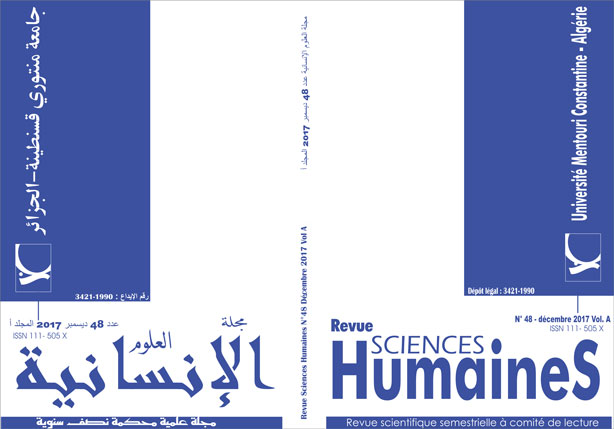The Role of Pragmatics in Foreign Language Learning and Teaching
Mots-clés :
Learners, needs, Pragmatics, Efficient English Language Teaching, Authentic ContextsRésumé
Because learning English for communication is currently emphasized, the need for a re-consideration of the English learners’ needs becomes necessary. Learners need to become more adept at producing and comprehending the pragmatic intent of an utterance, on the principle that less context implies more language. This paper aims at bringing into discussion the need and the importance of incorporating pragmatics into English language teaching in the English Department at University Constantine, 1. It focuses on the idea that efficient English language teaching must integrate pragmatic factors and issues in order to obtain satisfactory results not only in the classrooms but, more importantly, when learners use the English language in real and authentic contexts.
Téléchargements
Références
Bachman, L.F. 1990. Fundamental Considerations in Language Testing. Oxford: Oxford University
Press.
Beeb, L.M., and Takahashi,T.1987.The Development of Pragmatic Competence by Japanese
Learners of English. JALT Journal, 8(2), 131-155.
Bialystock,E. 1993.Symbolic Representation and AttentionalControl in Pragmatic Competence. In
Kasper, G. and Blum-Kulka (eds.), Pragmatic Interlanguage (PP.43-57). Oxford University
Press.
Brock, M.N. and Nagasaka, Y. 2005. Retrieved May 16,2014, from
http://ojs.lib.byu.edu/spc/index.php/ TESL/article/view/3808/3554
Celce-Murcia, M. and Olshtain, E.2000. Discourse and Context in Language Teaching: A Guide for
Language Teachers. Cambridge: Cambridge University Press.
Cook, H.2001.Why can’t Learners of Japanese as a Foreign Language Distinguish Polite from
ImpolieSpeech Acts Styles? In Rose, K. R., and Kasper, G. (eds.), Pragmatics in Language
Teaching (pp.80-102).New York: Cambridge University Press.
Crystal, D. 1985. A Dictionary of Linguistics and Phonetics (2nded.). Oxford: Blackwell.
Crystal, D. 1987. The Cambridge Encyclopedia of Language. Cambridge: Cambridge University
Press.
Guerra, A.B. F. et al. 2003. Pragmatic Competence and Foreign Language Teaching : An Introduction.
UniversitatJaum 1.
Kasper, G. 1989. Interactive Procedures in InterlanguageDiscourse. In W. Oleksy (ed.), Contrastive
Pragmatics (pp.189-229). Amsterdam: John Benjamins.
Kasper, G. 1997. Can Pragmatic Competence be taught? Retrieved June, 27, 2013, from
http://www.nflrc.hwaii.edu/networks/NW06/default.html
Kasper, G. 2000. Pragmatics in EFL Contexts. Retrieved July 06, 2013, from http:// www/jalt
publications. org/ tlt/articles/2000/07/Kasper.
Rose, K. R. and Kasper, K. (eds.). 2001. Pragmatics in Language Teaching. Cambridge: Cambridge
University Press.
Thomas, J.1995. Meaning in Interaction: An Introduction to Pragmatics. London: Longman.
Wolfson, N.1983. An Empirically Based Analysis of Complementing in America English. In N.
Wolfson and E. Judd (eds.), Sociolinguistics and Language Acquisition (pp.82-95).
Rowley, MA: Newbury House Publishers.
Yule, G. 1996. Pragmatics. Oxford: Oxford University Press.

















